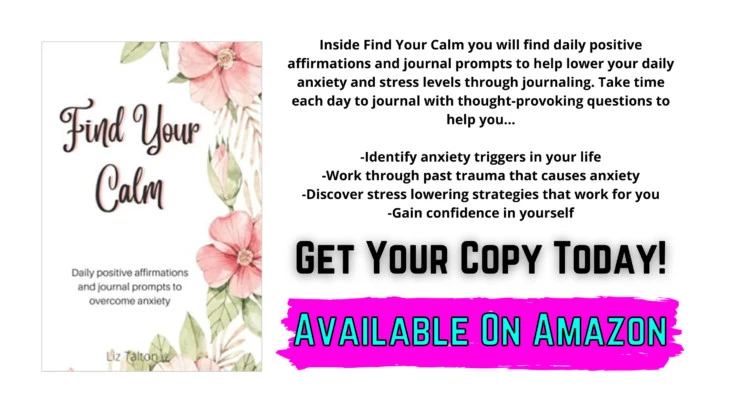Counseling or therapy has come a long way from Freaudian psychoanalysis. No longer do patients lay down on a couch to try and tap into their unconscious feelings and desires.
Now, talking to a therapist provides comfort and reassurance.
But there is one major problem with therapy… Many people don’t start talking to a therapist until it’s absolutely necessary. In other words, they start therapy once things are at their worst!
Fortunately, you don’t need to wait till the last second to talk to a therapist!
Counseling provides individuals with a multitude of benefits that can change your life for the better.
Disclosure: Bear in mind that some of the links in this post are affiliate links and if you click on them to make a purchase I will earn a commission. Keep in mind that I link these companies and their products because of their quality and not because of the commission I receive from your purchases. The decision is yours, and whether or not you decide to buy something is completely up to you.
Benefits Of Individual Counseling
1. Physical Symptoms Are Treated With Psychological Symptoms
Mental illness and disorders are more than just emotions. It’s a complex system of emotions causing physical symptoms to the body as well.
For instance: If you have anxiety you will experience trembling hands, hyperventilation, sweating, etc. This can trigger a fight-or-fight response that leads to a panic attack.
Since counseling is no longer about dealing with overwhelming emotions, you can be assured that any physical symptoms you experience as a result of emotions will be addressed in therapy.
But how are physical symptoms treated by a therapist?
By talking it out of course!
Simply talking through and processing your emotions in therapy will possibly decrease your physical symptoms.
Sometimes when we try and suppress our feelings those same emotions will manifest themselves physically.
This happens frequently with depression and anxiety, both of which come with many physical ailments.
To compensate for suppressed emotions our body reacts to stress with increased ailments (stomach aches, sleep disturbances, headaches, etc.).
By bringing those emotions to the surface that you’ve tried so hard to hide will in turn help decrease physical symptoms.
All you have to do is be open to conversation and be honest about your feelings.
Related Articles: Panic Attacks-Signs, Symptoms, And How To Reduce Them
Positive Affirmations For Anxiety
7 Calming Strategies For Relieving Panic Attacks
2. Tackle Repressed Feelings
Whether you want to admit it or not, you may have repressed feelings. Repressed emotions or memories stem from experiences which bring about unpleasant feelings like sadness.
When those experiences/memories are not properly expressed verbally, the result can be defense mechanisms like intense and sudden anger.
Let’s look at a pretty common situation that brings about repressed feelings and memories… Death.
If a loved one dies it brings about incredible sadness. That sadness may be so overwhelming to some that the emotion is repressed and the death itself is never talked about.
In order to move on from the death of a loved one, everyone needs to process through their sadness by talking and crying for a loved one.
Over time, the sadness that’s been hidden can resurface in the form of a depressive episode. Many people use a defense mechanism of anger to hide their true feelings.
The last thing you want is for repressed sadness to be triggered and lose control of your emotions by lashing out in anger.
One of the benefits of individual counseling is that it can help you resist the urge to lash out emotionally, which in turn will save your present and future relationships.
3. Helps You Deal With Future Conflict
This is one of the best benefits of counseling! Many people believe that therapy only helps them with their past trauma’s and present stressors.
However, this couldn’t be further from the truth! When you discuss your past and present stress, your therapist will discuss with you the following…
-How past experiences/traumas affected your life now
-How you worked through that experience/trauma
–What to do if a similar situation occurs
While it may seem like you’re not accomplishing much… Discussing your past trauma’s will help you identify present and future stressful situations before they become overwhelming to you, or emotions become repressed.
A therapist not only helps you process through complicated emotions but handle future stressful situations with confidence!

4. Provides A Non-Judgement Listening Ear
Have you ever talked to a close friend about something that was bothering you? Did you ever feel like that friend maybe…
Didn’t understand you
Wasn’t listening well
Offered bad advice
Those close to you mean well, but sometimes they offer solutions to problems that are not helpful. Let’s be honest…
Your friends are not trained professionals in psychology. Your friends have their own opinions that help them determine a solution or give advice to your problems.
A therapist is a licensed and trained professional that provides non-judgmental advice and solutions to your everyday problems.
Therapists will not give you opinions based off their personal feelings (unless you ask). Instead, they provide you with a listening ear for your biggest life stressors.
They’re someone you can come to with your tears and trauma and expect them to be empathetic and non-judgmental.
5. End Bad Habits
Therapists are in the business of helping people. Specifically, issues related to mental health. Within the realm of mental health is bad habits.
One of the best types of counseling for removing bad habits from your life is cognitive behavioral therapy (CBT).
CBT helps change bad habits by focusing on thoughts, actions and the relationship between the two. This type of therapy will help identify negative thoughts that turn into habits.
From there, CBT replaces those negative thought patterns to change bad habits into positive habits.
6. Achieve Goals
Although it is completely possible to achieve life goals without talking to a therapist, goals are easier to achieve with the use of therapy.
Whether you want to learn ways to cope with stress or remove a fear/phobia from your life, a therapist can help you reach your ultimate goal.
For instance: If you have a fear of enclosed spaces (also known as claustrophobia), your therapist can assist you in becoming more comfortable with small spaces.
This can be achieved through cognitive behavioral therapy with a technique known as exposure therapy.
Exposure therapy or desensitization can start by talking with a therapist about the event that triggered claustrophobia.
Then by working through your emotions related to small spaces, your therapist will then begin to expose you more to small spaces.
7. Identify Triggers That Make Symptoms Worse
Identifying triggers are essential for maintaining a stable mental health. This rings true for those suffering with any type of mental disorder.
With a mental disorder you’ll find overtime many symptoms you exhibit during a certain time are actually produced as the result of a trigger.
A trigger is something in your life that causes you added stress that negatively affects your mental health.
Stressors can range from a change in your daily routine to a certain person. Yes, even interacting with a specific person can serve as a trigger.
For me, my anxiety worsens when I am faced with large crowds and enclosed spaces. I try to avoid large crowds at all costs, but sometimes it is unavoidable.
I don’t have to avoid concert venues in order to stay away from large crowds. I can be confronted with this stressful situation just by being in a crowded grocery store.
One of the benefits of individual counseling is that it can help you identify what situations or people cause you stress or even send you into a panic attack.
By identifying these triggers, your therapist will work with you to not avoid the triggers, but live life with those triggers. Therefore, you and your mental health triggers will be in harmony together.
Related Articles: How To Stop Obsessive Thoughts
15 Signs You’re Suffering From High Functioning Anxiety
Best Self-Help Books For Emotional Abuse Recovery
Final Thoughts
Personally, I believe everyone can benefit from therapy. But most people wait until they’re almost at a potential mental breakdown to seek out therapy. I know… I’ve been there myself.
I have sought out counseling before for depression and anxiety issues when I was younger.
I’ve also had the pleasure of conducting talk therapy with individuals and groups to help with mental health issues.
Being on both ends of the spectrum (being in therapy and leading therapy sessions) I can tell you, therapy is beneficial!
With therapy you have a non-judgmental professional that can rewire your brain’s thought patterns in order to invoke positive changes in your life.
I think the best thing about therapy is that you don’t have to have a diagnosable mental illness to talk to a therapist. Therapy is for everyone!
So break down the barriers and give counseling (or even the idea of going to therapy) a chance to see the amazing benefits of individual counseling!
Works Cited
Phobias
25 CBT techniques and worksheets
4 ways everyone can benefit from a therapist
Benefits of psychotherapy




10 Ways To Elevate Your Self-Confidence ~ Pitter Patter of Baby Feet
Thursday 2nd of September 2021
[…] Related Articles: 7 Proven Benefits Of Counseling […]